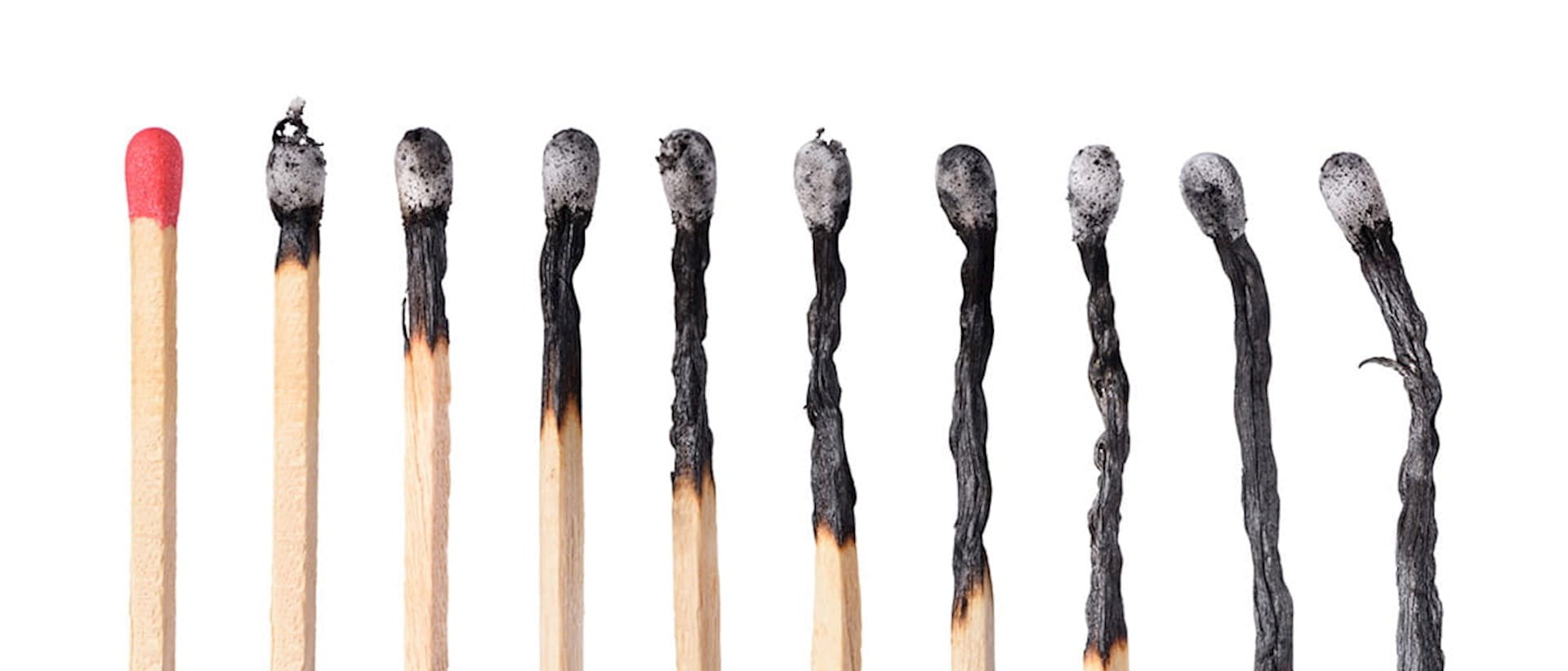No one would dispute that NHS staff are under growing pressure due to multiple factors, from understaffing to rising patient demand. Research from a range of organisations is consistently finding increased rates of burnout across all areas of healthcare. Burnout can be defined as a state of physical, mental and emotional exhaustion, usually occurring when you experience a lot of stress over a long period of time.
There is a well-established causal relationship between reduced clinician wellbeing and increased patient safety incidents. The rise in the incidence and severity of reported burnout is concerning – for clinicians themselves and due to the potential impact on patients and colleagues.
Personal consequences
New evidence reveals several groups of clinicians at high-risk of burnout:
- those working in remote areas or isolated roles
- those with disabilities
- those with caregiving responsibilities
- those working in specialties where there is an extreme backlog of work associated with the pandemic.
It is also becoming clear that clinicians can experience burnout at any stage in their career and that the personal consequences include a reduction in work satisfaction, a deterioration in health, and difficulty in empathising and demonstrating compassion with colleagues.
Organisational consequences
Consequences at the team or organisational level for clinical and non-clinical leads include:
- increased numbers of errors
- reduced productivity and efficiency
- a reduction in patient satisfaction measures
- a reduction in the quality of care delivered
- an increase in unprofessional behaviours which is directly associated with the inability to empathise and demonstrate compassion.
These behaviours also reduce the levels of both supportive and help-seeking behaviours which are essential to ensure safe practice.
Individuals can adopt protective strategies against burnout on a personal level (see some tips below) but it is now evident that systems and organisational factors within healthcare settings are increasingly contributing to the reduced well-being and diminished resilience of clinicians. Such factors include heavy workloads, challenging working environments (even at the level of basic needs, such as adequate hydration, rest and personal safety), normalisation of deviant behaviour within teams and ineffective leadership styles.
This is an extremely worrying trend. Clinical leaders may feel that there are some major factors beyond their ability to control or influence (e.g. funding or staffing) – but the following may be helpful to consider.
Human factors
Do you know what your team need from you, and when they need it? Take a look at our on-demand webinars on human factors for your area of healthcare (hospital, GP and dental practice are available). This will help you explore the necessary conditions for safe practice and offer prompts across areas where in your organisation, team or working environment you might be able to take action, or influence systems of working (or other colleagues) to improve conditions to support wellbeing.
Check-ins
Ask yourself: Do I understand how my team members are doing? Can you incorporate check-ins across their mental, physical and emotional wellbeing? These can be formalised at briefings or debriefings, or as straightforward as asking ‘How are you?’ and really listening to what is said.
I realise this can be daunting, as we often worry this might open a Pandora’s box. But I often find that people will say: ‘I’m fine thanks’ – though actually on observing non-verbal cues and delving a little deeper you will discover that things are probably not quite that fine. You may need to consider the level of psychological safety you have in play if the team are not letting you know that things are challenging at times.
People who don’t feel supported or properly listened to are much less likely to raise concerns about themselves or others.
Positive energy management
There is growing evidence to support the concept of positive energy management – making sure that as a leader you bring your best self to the team at all times. Being able to step aside from the stuff that negatively drains your emotional capacity and convert it to a positive is important when leading others. It’s still important to recognise the negatives and their effect (particularly in front of the team) but being able to demonstrate you can move forward through anything in a positive way helps the team feel supported and provides reassurance.
Being self-aware
My key tip here for all clinicians (including leaders) is to work on self-awareness. Starting to notice early warning signals is an important first step to managing your response. These are different for different people but can often include:
- feeling tired or drained
- frequent illness (lowered immunity)
- lack of motivation
- memory loss
- changes in your attention span
- feelings of failure or self-doubt
- feeling detached or isolated
- noticing a reduction in the quality of your interactions with colleagues or experiencing increased negative emotions towards patients and/or colleagues requiring increased levels of self-management and control (are they getting annoyed with you, are you getting more annoyed than usual with them, are you avoiding some colleagues as you don’t have the energy, are you cutting encounters short for this very reason).
Proactive wellness
It can also be helpful to reflect on things you can do proactively to manage your own wellness: for example, writing down a wellness ‘plan on a page’ which includes ideas of activities you could incorporate into daily life that will support your own personal wellness across mind, body and spirit. For me these headings would include: mind – listening to music, or reading; body – doing a mini strength workout twice a week, switching off my phone earlier before I try to get off to sleep; spirit – walking the dog, making sure I connect with friends more often.
Challenging encounters
Practice self-compassion when reflecting on challenging interactions with colleagues. It may be that your approach or response to a situation contributed to a negative outcome; however, just because you got one interaction wrong, you are not a bad person. Just take the opportunity to be honest and apologetic the next time you see them. Of course, if there is a pattern developing, it’s worth delving a little deeper to see whether there are actions you need to take to break the cycle. Our course on developing insight (see below) is designed to support this.
No easy solution
We acknowledge that these issues present a complex challenge for health service organisations and individual clinicians, and there is much more to say on the topic of burnout. MDDUS has been lobbying UK governments on addressing workforce health and wellbeing issues. We have also developed courses for leaders on how to build conditions which support resilience, and for individual members to develop strategies to maintain wellness.
Actions
- Take time to understand your own lived experience in relation to burnout.
- Ask for support if you are experiencing signs of burnout. Patient safety can be impacted and all clinical colleagues have a professional responsibility to provide a supportive response in these circumstances.
- Consider contacting our HA | Wisdom Wellbeing – a confidential service providing support to MDDUS members.
- Remember that clinicians in leadership roles have additional professional responsibilities in relation to creating safe, inclusive and health-promoting work environments.
Further resources
- Creating safe, inclusive environments (MDDUS Zoom course for leaders)
- Self-assessment and developing insight (MDDUS Zoom course for anyone)
Other dates are available for these courses via the Events page on the Training & CPD section of the MDDUS website.
This page was correct at the time of publication. Any guidance is intended as general guidance for members only. If you are a member and need specific advice relating to your own circumstances, please contact one of our advisers.
Save this article
Save this article to a list of favourite articles which members can access in their account.
Save to library

